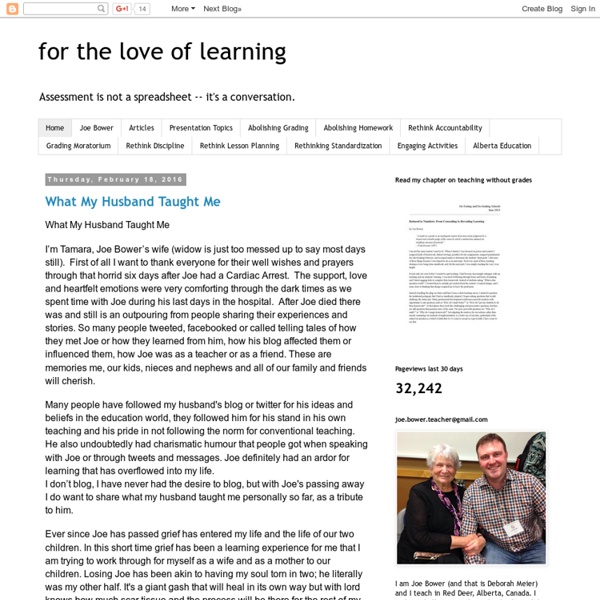



Teacher Reboot Camp 10 Team-Building Games For The First Day Of Class 10 Team-Building Games For The First Day Of Class by TeachThought Staff Team-building activities are great. Not only can they help establish routines, tone, and expectations, they’re also fun, and can help learners feel comfortable. Though many older students in high school and college may groan at their thought, they’re usually fun, and great ways to help students feel at ease. Before you dismiss them as too juvenile, try one. Note that which game you choose, your rules for the game, and any revisions to the rules depend on the nature of the class you’re using them with. 1. Ideal Grade Levels: K-20 First student gives a fact about themselves—I love basketball, I have two sisters, etc. 2. Ideal Grade Levels: 6-20 Two chairs are placed together to resemble park bench. What: College Basketball game Who: Kentucky and Kansas When: Early April Where: New Orleans 3. Ideal Grade Levels: 3-12 In circle, first student offers two facts and one piece of fiction about themselves. 4. 5. 6. 7. 8. 9. 10.
12 Most Out of This World Leadership Lessons from Star Wars A long time ago, in a galaxy far, far away, a trilogy was born that was so epic people discussed it for years to come. There were explosive battles, valiant heroes and super villains. That trilogy is Star Wars! Star Wars was the first movie that I remember seeing, and it has to be the movie that I have watched the most in my life. Every viewing brought a new lesson as I grew up. Let’s travel to that galaxy where we will join Yoda, Luke Skywalker, Darth Vader but never Jar-Jar Binks to find the 12 Most Out-Of-This-World Leadership Lessons from Star Wars. 1. I know Yoda didn’t quite say this, but the spirit behind his words is clear. 2. The coolest Jedi trick is Obi-Wan using misdirection to escape detection from the Storm Troopers in the famous line, “These are not the droids you seek.” 3. Luke Skywalker has the raw talent to be a Jedi, but he had to spend a lot of time in the swamp learning how to use the force. 4. Han Solo is a narcissist. 5. 6. 7. 8. 9. 10. 11. 12.
Just give me the fish! cc licensed ( BY SD ) flickr photo shared by CollegeDegrees360 “We have to stop thinking of an education as something that is delivered to us and instead see it as something we create for ourselves.” Stephen Downes Traveling around and speaking at conferences, I have peeked my head into several sessions and try to figure out which ones have the highest attendance. I don’t have time to learn how to fish… just give me the fish! Unfortunately, I am unable to give those sessions anymore. One of the reasons that many people would much prefer going to the session that just gives them stuff “Monday ready” is due to the lack of time. Doing sessions at convention and outright telling people that they will have to continue working on their learning after this session can be a daunting thing. Every once in awhile though, I see tweets like this that know this focus on learning, can have a huge impact: If we as educators continue to focus on our learning first, won’t we become better teachers?
Where are We Going and Why? Post submitted by Andy Hargreaves and Pasi Sahlberg We are entering an age of post-standardization in education. It may not look, smell, or feel like it, but the augurs of the new age have already arrived and are advancing with increasing speed. Educational systems across the globe are under pressure to change. A global chasm of educational achievement and emphasis is opening—a vast rift that is not only separating high-performing countries from low-performing ones but also dividing the dynamic innovators from the standardized fabricators of test score improvements in basic skills. Creativity, Collaboration, Critical Thinking, and Problem Solving The world's leading expert on the extraordinary educational and economic success of Finland, Pasi Sahlberg (who is also a former World Bank education specialist), puts it this way: Schools and other educational institutions should cultivate attitudes, cultures, and skills needed within creative and collaborative learning environments. References
184 Days of Learning Flipped Classroom, Game Based Learning, and Flexible Assessment With a focus on student based learning we collaborated to revamp some of our classes. Our primary foci have been on creating a flipped classroom (through video lessons), game based learning, and flexible assessment at a high school level (implementing ideas in Physics 20, Physics 30, Science 10, and German 10 classes). Flipped-Classroom – In the spirit of student based flexible learning both Physics 20 and Physics 30 classes are being taught through a flipped approach. Game Based Learning in Physics 20 – In conjunction with flipped-classroom, game based learning has been implemented at the Physics 20 and Science 10 levels to encourage student engagement and unite the course material under common narrative themes. Flexible Assessment A natural progression of the Flipped-Classroom and students working at their own pace is that the students will also be ready to demonstrate that learning at different times. Conclusion